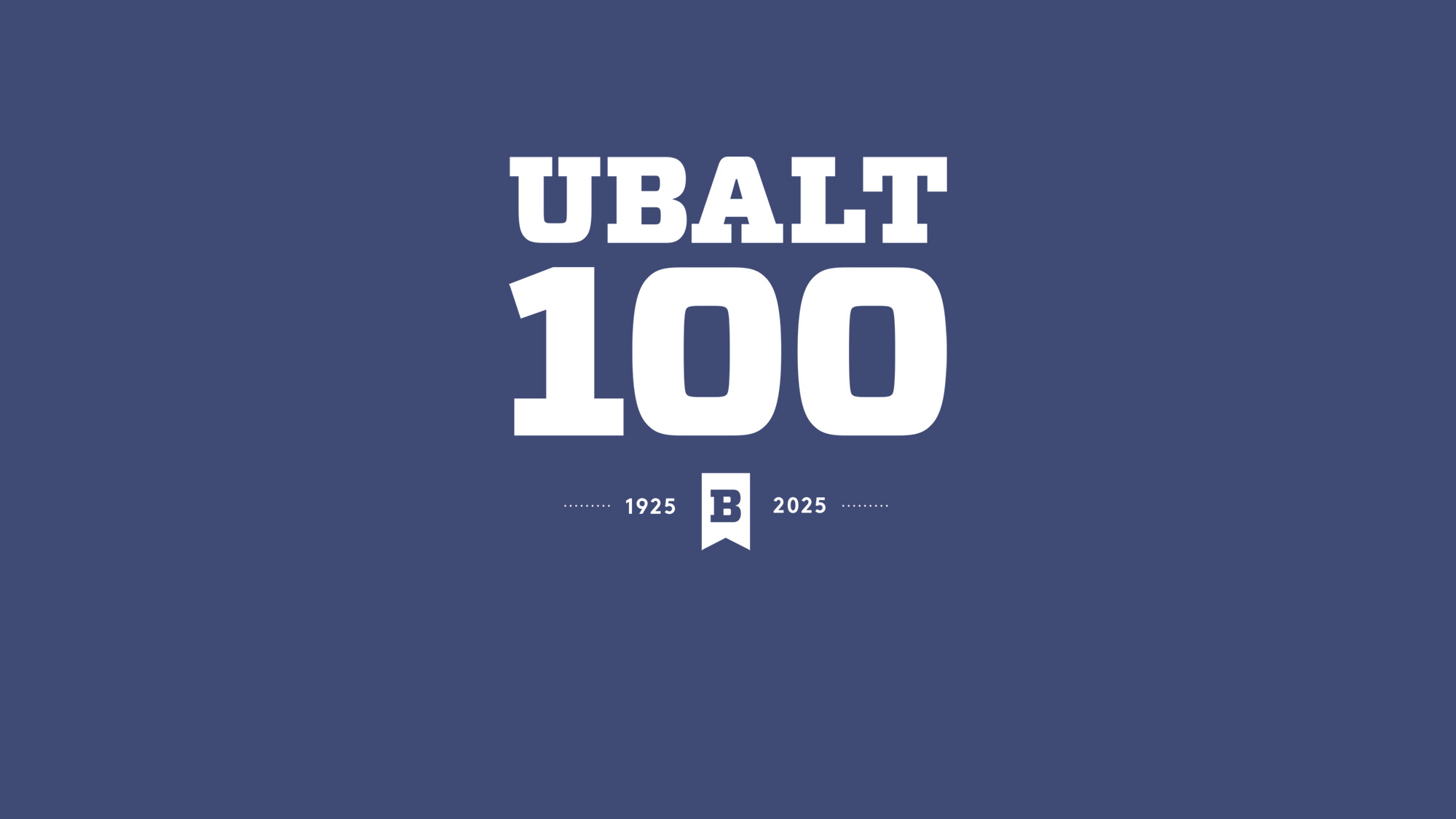Early Entry Law - Business

Why This Specialization is For You
Achieve More. SPend Less Time and Money.
The Early Entry Law specialization—also known as Pre-Law, Business—provides eligible students a pathway to expedite their legal careers. This option aligns with your B.S. in Business Administration program requirements, with the unique feature of completing your senior year as a first-year student in the UBalt School of Law.
Business and Entrepreneurship | Law, Justice and Public Affairs
Program Type
Locations/Format
Cost
Undergraduate
Tuition & Fees
Requirements
120-credits to earn a degree:
- 38 General Education
- 27 Lower-Division Business
- 28 Upper-Division Business Core
- 30 First-Year Law School
- Guide to Graduation
Early Entry Law Specialization
B.S. in Business Administration
Pursuing UBalt's Pre-Law Options is a strategic career move. The University of Baltimore offers qualified students the opportunity to select the Law School Early Entry option (a.k.a. Prelaw) to accelerate their careers. This specialization follows the requirements for your bachelor's in Business Administration but requires you to complete your senior year as a first-year UBalt School of Law student.
Speak to a School of Business academic adviser or visit the UBalt School of Law's Prelaw website to find out if you are eligible for this program.
A Clear Advantage
- Finish your undergraduate degree and your law degree in a minimum of just six years.
- Pay the undergraduate tuition rate for your first fall and spring in law school rather than the higher law school tuition rate—if, and only if, you are applying for Early Entry as a UBalt undergraduate student who entered UBalt as a freshmen and remained continuously enrolled.
ADMISSION INFORMATION
Finish your undergraduate degree and your law degree in a minimum of just six years.
This option allows your first year of law school to fulfill the requirements of your last year of undergraduate study if you are enrolled in the B.S. in Business Administration.
You can take advantage of this speedy route to a law career if you:
- have a cumulative cross-institutional grade point average of 3.50* or better and earn an LSAT score of 150* or better as computed by the Credential Assembly Service.
- -OR- have a cumulative cross-institutional grade point average of 3.0* or better and earn an LSAT score of 152* or better as computed by the Credential Assembly Service.
NOTE: To receive your bachelor's degree, you must apply for graduation during the last semester of your first year of law school.
*subject to change
You can be presumptively admitted into the entering class of the UBalt School of Law following your business degree if you:
- are a graduate of a University of Baltimore undergraduate program
- have a cumulative cross-institutional grade point average of 3.35* or better as computed by the Credential Assembly Service and earn an LSAT score of 150* or better
- -OR- have a cumulative cross-institutional grade point average of 2.75* or better as computed by the Credential Assembly Service and earn an LSAT score of 152* or better.
*subject to change
- Complete the 90 undergraduate credits required for your degree (but don’t wait till you’ve completed them to start thinking about this option)
- Complete a minimum of 36 credits at UBalt, excluding AP, IB, DSST, CLEP or challenge examinations.
- Complete all lower- and upper-division general-education requirements.
- Apply to the UBalt School of Law (applications must be received by April 1 for admission the following fall; you are always encouraged to apply before March 1); admission is for the fall semester only (note that the law school cannot make an admission decision until you have completed 75 credits of undergraduate coursework).
- Take the LSAT no later than February of the calendar year in which you’d like to enter law school.
- To receive your bachelor's degree, you must apply for graduation during the last semester of your first year of law school.
- Answers to the character and fitness questions on the UBalt School of Law application can affect your eligibility for Presumptive Admit. If you answer yes to any of the questions about academic and disciplinary probation, criminal offenses, civil suits or employment termination, you are not eligible for Presumptive Admit. Instead, your application will be forwarded to the admissions committee for a complete review.
- Acceptance into the UBalt School of Law does not guarantee placement into any particular law school program. You could be admitted to the full-time day program, part-time day program or evening program.
- The law school reserves the right to increase or decrease the required grade point average and LSAT score on an annual basis.
- For more information about these options, contact the Office of Law Admissions at 410.837.4459 or lawadmissions@ubalt.edu.
Exploring Synergies: Business and Law in Action
This program goes beyond time-saving in education, providing a comprehensive curriculum. In addition to business fundamentals, you'll learn about auditing financial statements, conflict resolution, contract development and more. Explore the intersection of business and law across various domains such as administrative law, antitrust law, intellectual property law, international law, labor and employment law and many others.
Here are a few reasons why business education is a great way to prepare for law school.
- Analytical Skills and Critical Thinking: A business administration degree heavily emphasizes analytical skills, problem-solving, and critical thinking. These skills are essential for success in law school, where students must analyze complex legal cases, identify key issues, and construct persuasive arguments.
- Understanding of Business Concepts: Business administration courses cover a wide range of topics, including finance, accounting, marketing, and management. This knowledge can be invaluable in legal practice, particularly in areas like corporate law, tax law, and intellectual property law.
- Professional Skills and Work Ethic: Business administration programs often involve internships, group projects, and presentations, which help students develop strong communication, teamwork, and time management skills. These skills are crucial for success in law school and beyond.
Learn more about The University of Baltimore School of Law.
Did you Know?
- Employment of lawyers is projected to grow 8 percent from 2022 to 2032, faster than the average for all occupations.
- About 39,100 openings for lawyers are projected each year, on average, over the decade. Many of those openings are expected to result from the need to replace workers who transfer to different occupations or exit the labor force, such as to retire.
Bureau of Labor Statistics, U.S. Department of Labor, Occupational Outlook Handbook, Lawyers, (visited March 11, 2024).
What Our Graduates Do
Going to law school after business school is a strategic career move — and a path that many top students take. After completing both degrees, our graduates find rewarding careers in various positions and industries, both in and outside of field.
Common Roles
- Accountant
- Attorney
- Auditor
- Compliance Expert
- Financial Analyst
- Fraud Examiner
- Government Agent
- Personal Financial Planner

A Message from Dean Raju Balakrishnan
Read Full StoryA degree from the Merrick School of Business is more than just a qualification; it's a passport to a world of opportunity.
UBALT BUSINESS IS FOR YOU
The University of Baltimore Merrick School of Business helps you achieve your career goals. We value your real-world experience and believe it brings a valuable perspective to the classroom. Whether you’re looking to launch your career, seek a promotion or even a career change, our programs provide the support and network you need to succeed. You'll be taught by professors who aim to equip you with the skills needed in a dynamic business environment and you’ll learn alongside a diverse group of classmates, gaining from their perspectives while enriching theirs with yours.











